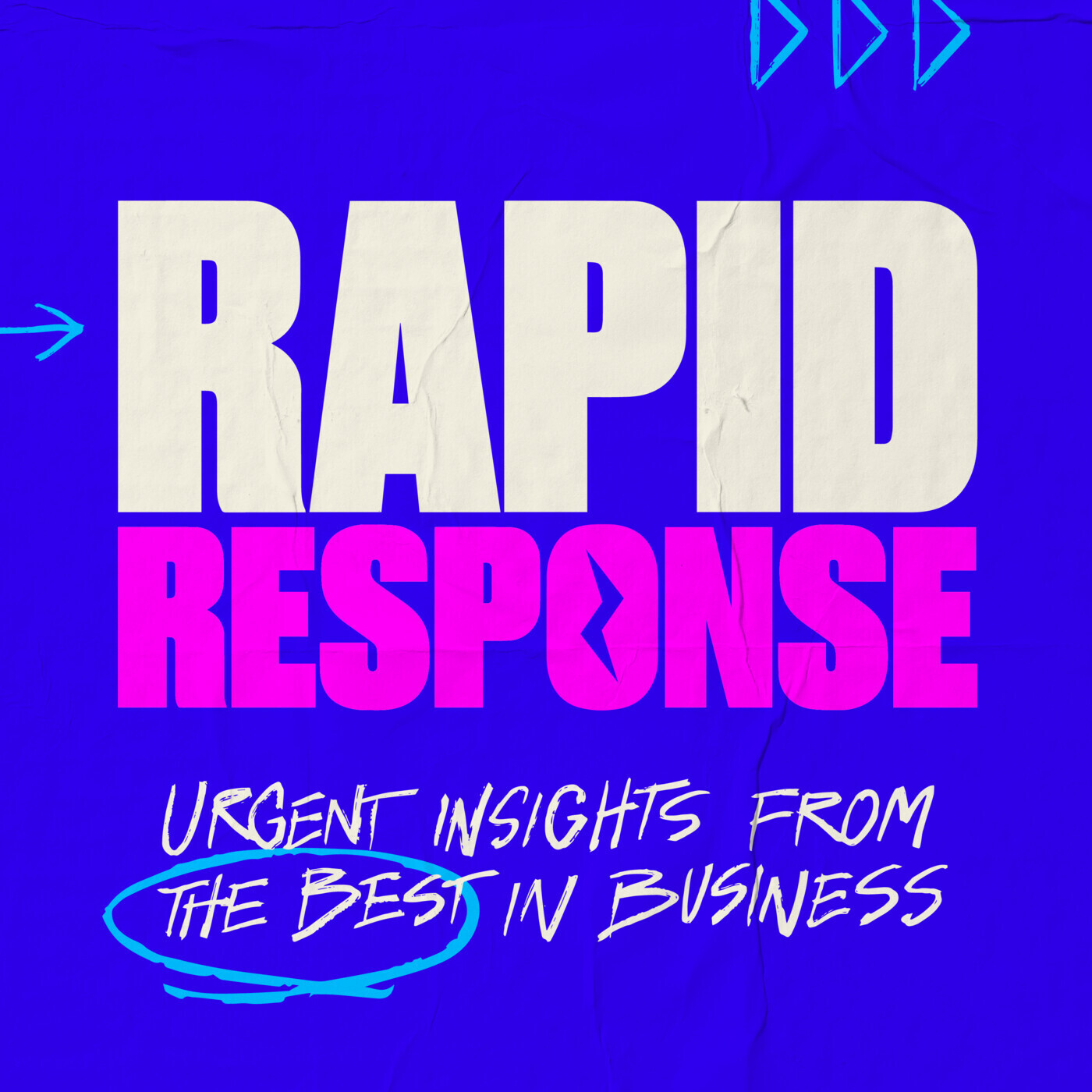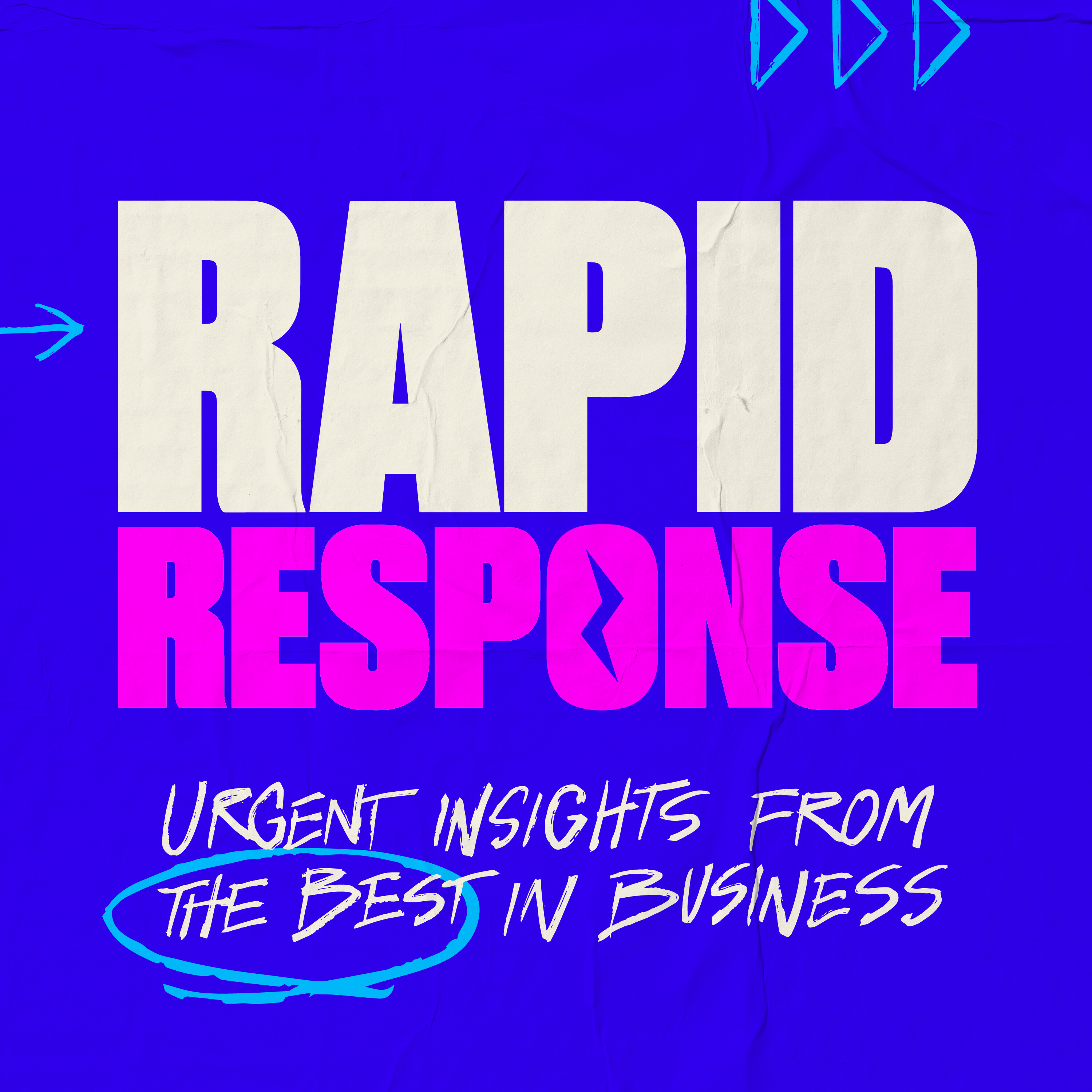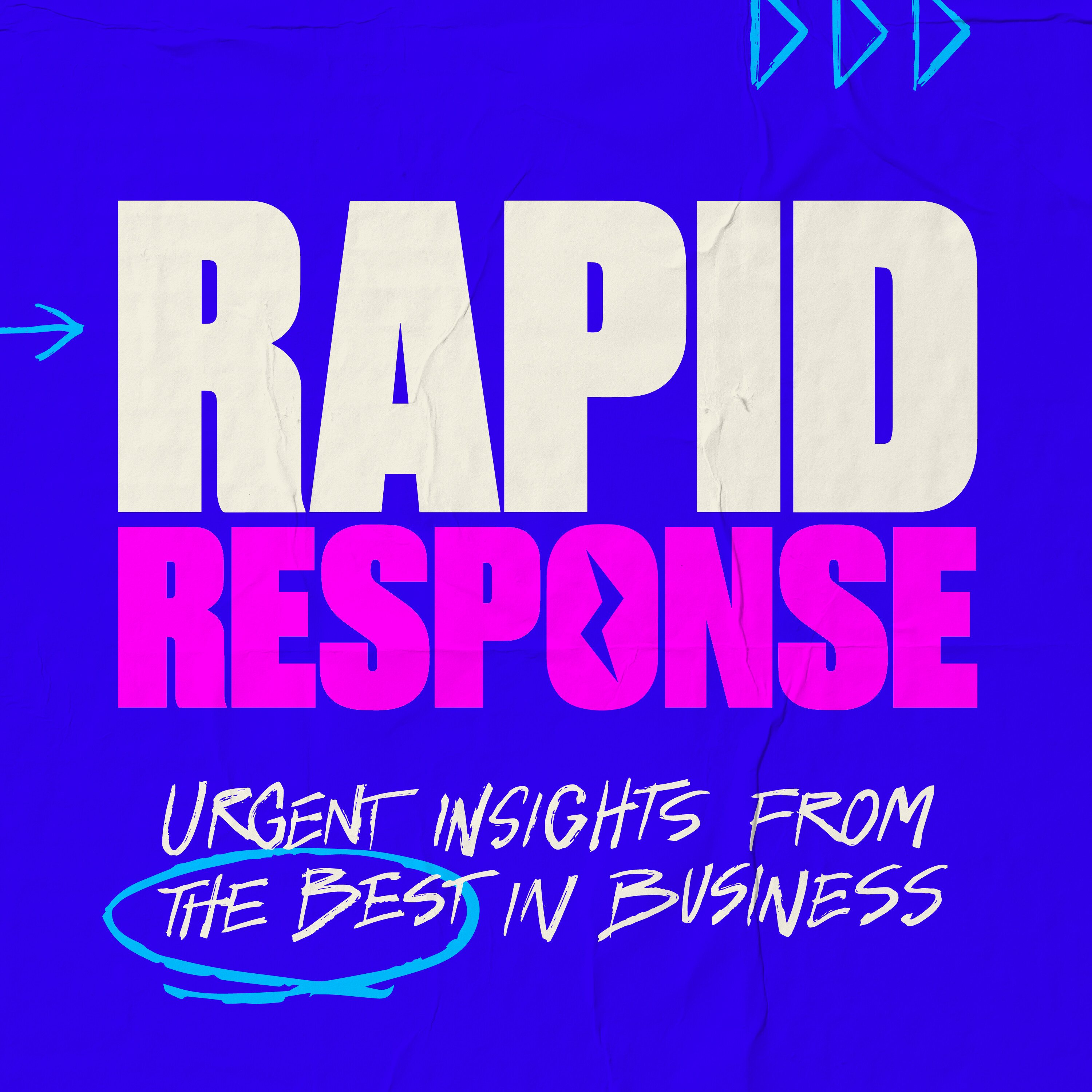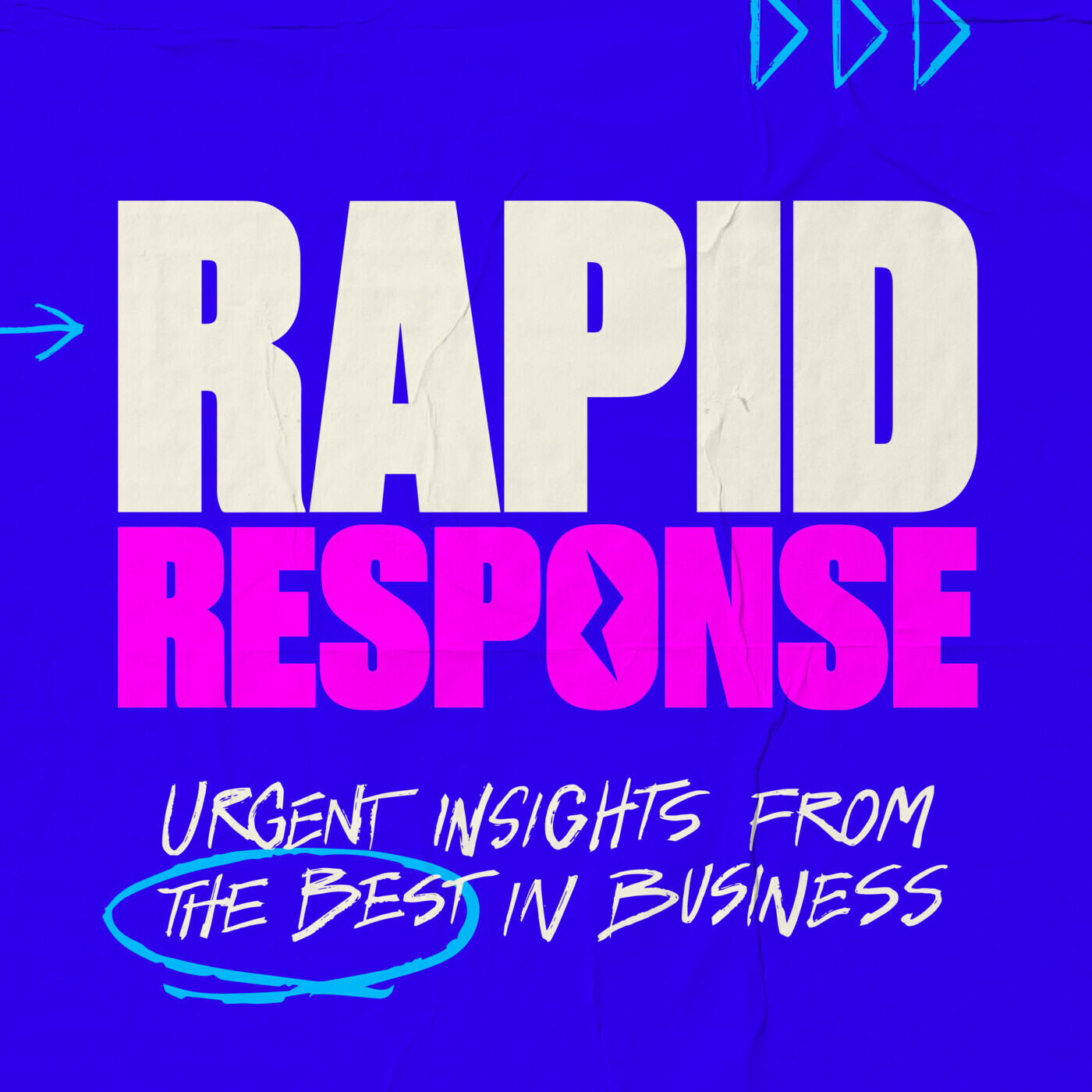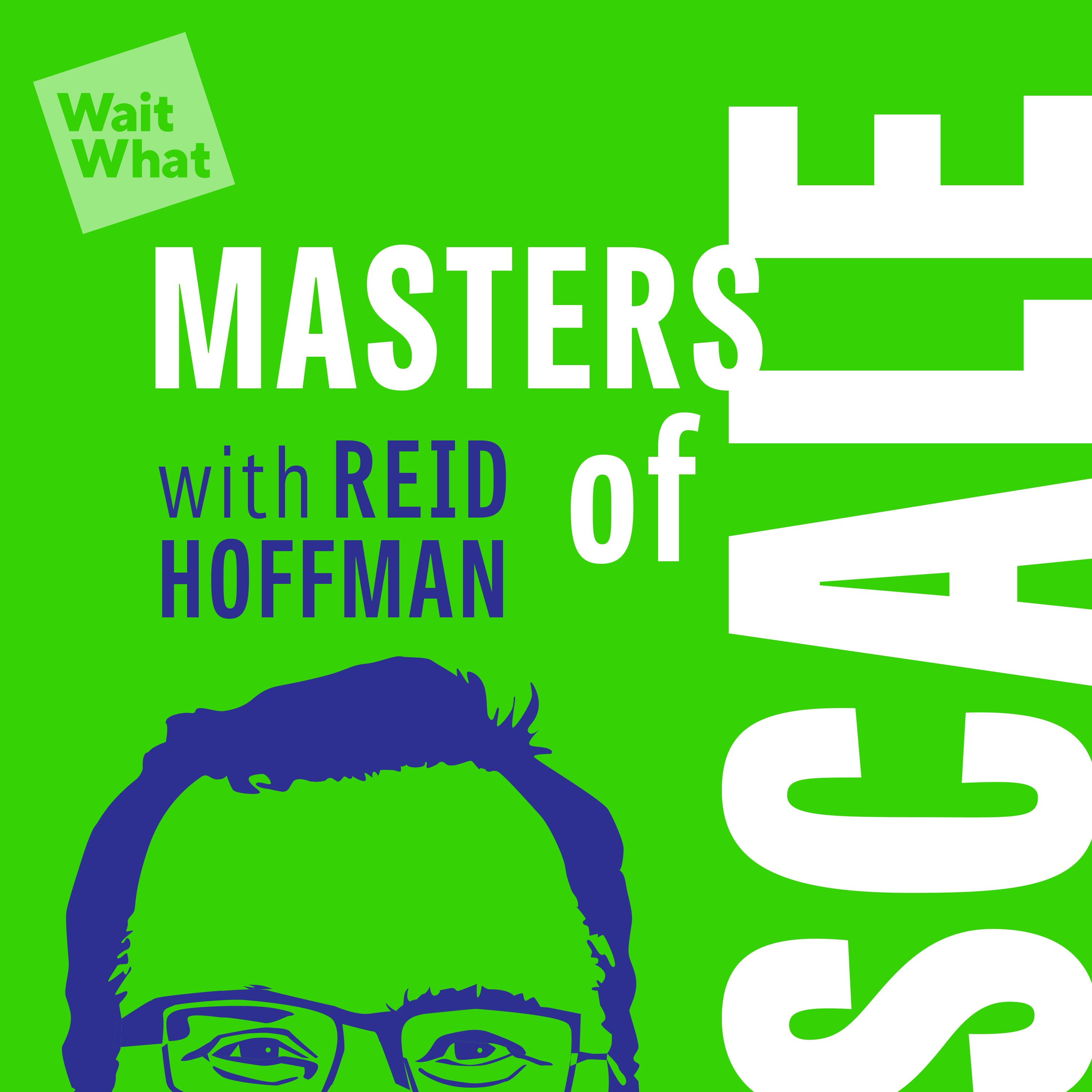
June 1, 2024 • 39min
Bonus: Angela Duckworth’s “No Stupid Questions” Podcast
Masters of Scale

Key Takeaways
- Routines and habits can free up cognitive bandwidth for more important decision-making and creative thinking
- Consistency and predictability in childhood are crucial for developing cognitive control and executive function skills
- Flexibility is important - routines should be "firmly held but loosely applied" to allow for adaptation
- Planning routines for yourself as if you were advising a friend can lead to better decisions about structuring your time
- Habit stacking (attaching new habits to existing routines) can be an effective way to build positive behaviors
- Morning routines are common among productive people, but not universal - some highly productive individuals thrive without rigid morning structures
- Having regular routines and rituals can actually enhance creativity by providing a stable foundation
Introduction
In this episode of "No Stupid Questions", psychologist Angela Duckworth and entrepreneur Mike Maughan explore the value and potential pitfalls of routines and habits. They discuss how routines can boost productivity and wellbeing, while also examining when flexibility is needed. The conversation covers morning rituals, childhood development, creative processes, and strategies for building effective routines.
Topics Discussed
The Value of Routines and Habits (0:41)
Angela and Mike begin by discussing the benefits of having regular routines and habits:
- Cognitive bandwidth: Routines free up mental energy for more important decisions and creative thinking
- Productivity: Many highly successful people attribute their accomplishments to consistent daily habits
- Wellbeing: Predictable structures can reduce stress and anxiety
Mike shares an example of a routine he tries to follow: "When I brush my teeth, I try to do wall sits at the same time." This illustrates the concept of habit stacking - attaching a new desired behavior to an existing habit.
Morning Routines (16:40)
The hosts discuss the popularity of morning routines among productive individuals:
- Tony Robbins' morning ritual involving breathing exercises, gratitude, prayer, and prioritization
- Angela notes that while morning routines are common, they're not universal among high achievers
- Example of highly productive author Cass Sunstein, who doesn't follow a strict morning routine
Angela reflects: "For a time, I thought every productive person has a morning routine. But let me tell you how I was wrong about that."
Routines and Creativity (20:41)
Mike introduces the idea that routines and structure can actually enhance creativity, referencing Mason Curry's book "Daily Rituals: How Artists Work":
- Order enables exploration: Having a stable foundation allows for more daring creative leaps
- Emotional security: Predictable environments reduce anxiety, freeing up mental space for creative thinking
- Conserving willpower: Routines reduce decision fatigue, leaving more energy for creative pursuits
Angela adds scientific support to this concept, citing recent research on environmental predictability and cognitive development in children.
Childhood Development and Predictability (23:41)
Angela discusses how consistency and routine in childhood are crucial for developing important cognitive skills:
- Cognitive control: The ability to regulate thoughts and actions develops better in predictable environments
- Executive function: Skills like planning, focus, and self-control are enhanced by routine
- Ethical development: Consistent parenting approaches correlate with more ethical behavior in children
Angela notes: "Consistency in parenting, this is something I wasn't that great at, but I tried. I knew the research."
The Downsides of Rigid Routines (25:54)
The conversation shifts to examine potential drawbacks of overly strict routines:
- Lack of flexibility: Rigid habits can make it difficult to adapt to changing circumstances
- Missed opportunities: Sticking too closely to routines might cause you to overlook spontaneous positive experiences
- Reduced mindfulness: Automatic behaviors can lead to less present-moment awareness
Angela emphasizes the importance of finding a balance: "I think flexibility is a cost of routine. So let me tell you about a study that I did..."
Finding the Right Balance: A Research Example (28:47)
Angela shares a study she conducted with Crisis Text Line volunteers to explore the trade-off between structure and flexibility:
- Control group: Asked to complete 200 hours over a year with no specific weekly targets
- Rigid structure group: Asked to volunteer exactly 4 hours every week
- Flexible structure group: Asked to volunteer 8 hours every two weeks
Results:
- Both structured approaches increased volunteering by about 8% in the first 12 weeks
- The flexible structure group showed more enduring benefits over time
This study highlights the value of having structure while still allowing for some adaptability.
Strategies for Developing Effective Routines (30:32)
Angela and Mike discuss practical advice for creating and maintaining beneficial routines:
- Third-party perspective: Plan your routines as if you were advising a friend, to make more objective decisions
- Habit stacking: Attach new desired behaviors to existing habits (e.g., doing exercises while brushing teeth)
- "Firm routines, loosely held": Have consistent structures, but allow for flexibility when needed
- Start small: Begin with modest, achievable routines and build gradually
- Regular evaluation: Periodically assess if your routines are still serving their intended purpose
Mike reflects on the value of intentionality: "I think that my life has been so much richer when I have tried to incorporate routines into it."
Listener Feedback on "Closure" (34:21)
The hosts share listener responses to their previous episode on the concept of closure:
- The psychological need for closure vs. social media advice to "move on" without explanation
- How lack of closure in ended friendships can lead to long-term rumination
- An example of how unresolved positive mysteries can also create a sense of incompleteness
Conclusion
Angela and Mike conclude that while routines and habits can be powerful tools for productivity and wellbeing, it's crucial to maintain flexibility. The ideal approach involves having consistent structures that provide stability, while still allowing for adaptation to changing circumstances. By thoughtfully designing routines - perhaps by imagining we're planning for someone else - we can create frameworks that enhance our lives without becoming overly rigid.
The hosts encourage listeners to reflect on their own relationship with routines and to experiment with finding the right balance between structure and spontaneity in their lives.

